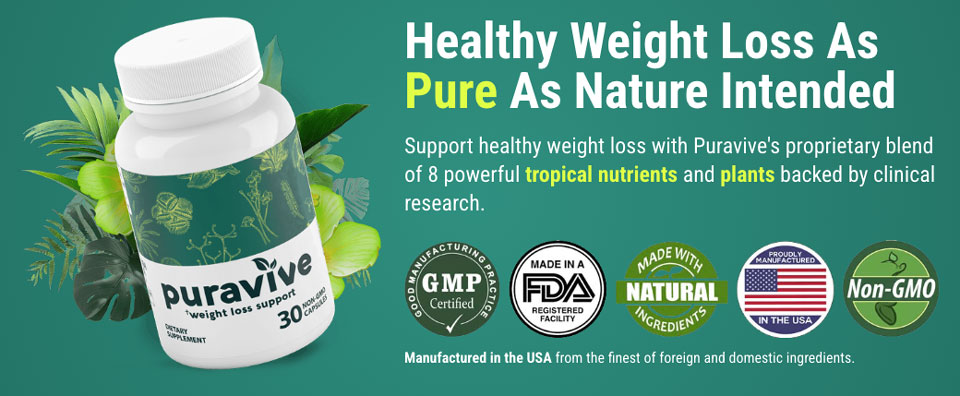Table of Contents
Fruits and Vegetables
Fruits and vegetables provide essential vitamins that our brains need to stay healthy.
They also contain antioxidants, which help protect brain cells from damage caused by molecules known as free radicals.
As we age, our bodies develop free radicals that attack brain cells, causing damage and injury. Antioxidants counteract free radicals to help slow the aging process.
Berries

Blueberries, raspberries, strawberries, and blackberries contain high amounts of antioxidants. They also have anti-inflammatory properties.
When the brain is over-active and inflamed, it produces more aging-related hormones. Berries help slow that process.
Try adding some to your breakfast oatmeal or cereal, grabbing them as a snack, or eating them as dessert.
Concord Grapes. Studies show increased memory function and better blood flow to the brain’s memory area in people who consumed Concord grapes. Eat them as a snack, put some on your lunch or dinner plate, or drink Concord grape juice to get their benefit.
Broccoli

Broccoli contains high levels of Vitamin K, an essential nutrient for brain health. Broccoli also contains sulforaphane, a substance that may protect the brain from aging. Eat it raw as a snack, or enjoy it steamed with dinner.
Kale

Kale is full of important nutrients, including Vitamin K, Vitamin A, and Vitamin C. It contains many of the B vitamins, which are needed for healthy brain function. Kale is also high in antioxidants. The body easily absorbs the nutrients in kale, packing each bite with power. Add kale to your salad or boil it as a flavorful side dish. It can even be added to soup to boost texture and nutrition.
Beets

Research suggests that beets may increase blood flow to the brain and slow the aging process. Raw beets are good in salads or blended into smoothies. You can roast beets in the oven or on the grill and serve them as a side dish.
Fish, Nuts, and Plant Proteins
Fatty fish like salmon are high in Omega-3 fatty acids, which help build and strengthen brain cell membranes from damage. Plant-based proteins provide the basic building blocks for brain health. Plant proteins are also high in other nutrients without as many calories and fat as animal proteins.
Fish

You need to eat fish at least twice a week to provide your brain with enough Omega-3 fatty acid. Choose fatty varieties like salmon, trout, tuna, and sardines. Fish can be baked or grilled and served in place of meat. Try adding salmon to your salad or mixing some in a casserole.
Walnuts. Walnuts are the best tree nut source for plant-based Omega-3 fatty acid. Add them to salads, baked good, and deserts. They also make a crunchy and flavorful topping on vegetable side dishes.
Beans

Beans are an important part of a healthy brain diet. They provide protein and Omega-3 fatty acids. Navy and kidney beans are high in these nutrients. Add them to soups, stews, and salads. You can even blend navy beans into mashed potatoes for a healthier side dish.
Soybeans. Soybeans not only offer protein and Omega-3 fatty acids, but they are also high in Vitamin B6. Lack of Vitamin B6 has been shown to decrease thinking ability and cognitive function. Add soybeans to your diet with soymilk or tofu. Edamame is the form of soybeans that haven’t fully matured. It can be boiled in the pod and served as a side dish, or the boiled seeds can be added to salads.
Whole Grains and Seeds

Whole grain foods and nuts are rich in minerals and B vitamins. Our brains need minerals and B vitamins for healthy functioning, repair, and energy. B vitamins help build neurotransmitters, chemicals that allow our brain and body to communicate together. Our bodies can’t store B vitamins, so we need to eat enough every day to function properly.
Oats

Oats are a complex carbohydrate. It takes time for the body to process them, resulting in a longer energy boost. Complex carbohydrates also have a richer flavor than refined grains. Eating oatmeal for breakfast is an excellent way to add whole grain to your diet. You can also bake muffins and cookies with oats for a healthy snack or dessert.
Flaxseed

Flaxseed is high in Omega-3 fatty acids and protein. Studies show it may improve memory for people with Alzheimer’s disease. Add ground flaxseed to your cereal or mix it into a smoothie. Sprinkle it on salads or toast with nut butter. Ground flaxseed is easy to add to baked muffins, cookies, and bread. Flaxseed oil doesn’t contain protein, but you can get its healthy Omega-3 benefits by replacing vegetable oil with olive oil or using it in place of butter with bread or rolls.
Pumpkin Seeds

Pumpkin seeds offer important brain function minerals like zinc and magnesium. Zinc is essential for healthy brain function and may have anti-inflammatory properties and help stop free radical formation. Magnesium is linked to better short-term memory. Add pumpkin seeds as a snack in place of chips or toss them in a salad for extra flavor and crunch.
Spices
Adding healthy brain spices is easy and provides exciting taste differences to your food. Certain spices are high in antioxidants and have anti-inflammatory properties. Research shows that many spices are linked to better brain memory and function.
Turmeric

Not only is turmeric a good source of antioxidants, but it may also slow plaque build-up and protect nerve cells in the brain. Add it to scrambled eggs or soups. Toss roasted vegetables with turmeric or blend it with rice in a side dish. You can even make tea with turmeric for a tasty drink.
Sage

Research on sage shows it helps improve memory, attention, and high-level thought processes. It may also improve brain health in people with Alzheimer’s disease. Add it to white bean soup, roasted squash, and tomato sauce. Cooking chicken and turkey with sage for flavor adds healthy brain benefits. You can also make tea with sage and other healthy spices.
Ginseng

Ginseng has strong anti-inflammatory properties and may also fight the buildup of plaque in the brain. While it’s most popular in ginseng tea, you can eat it raw or steam it to soften it too.
Lemon Balm. Studies show that lemon balm improved cognitive function in people with Alzheimer’s disease. It is also used to improve memory. Another favorite for tea, lemon balm also blends well into smoothies and honey. Lemon balm adds flavor to chicken, fish, and salads. There are many ways to use this spice for brain health.
Drinks and Chocolate
When used in moderation, coffee, tea, and wine are all brain boosters. Caffeine helps focus thoughts and attention and may help the brain store new memories. Black and green tea, along with red wine and chocolate, contain antioxidants. Treating yourself to a cup, glass, or a dark chocolate treat can improve your brain function and health.
Coffee

The caffeine in coffee may reduce the risk of dementia. About three cups a day are recommended. Avoid caffeine in the evening if it keeps you awake. And if you like light coffee, try adding some soymilk for more benefits.
Tea

Many spices that are popular for tea have benefits for the brain. The antioxidants in black and green tea are also good for brain health. Some teas contain caffeine. Those without caffeine are better for use before bed. Try adding tea to your diet by finding your favorite flavor to drink. There are fruit, sweet, and other blends available.
Red Wine

Choose a glass of your favorite red wine to help slow the aging process in the brain. Strong antioxidants give red wine healthy brain benefits. Substitute red grape juice if you’re not a wine drinker.
Chocolate

Dark chocolate, with at least 72% cocoa, is full of antioxidants and helps reduce brain inflammation. Add unsweetened, dark chocolate cocoa powder to oatmeal at breakfast. Use it as a dry rub for meat. You can also add it to coffee, a milkshake, or make hot cocoa for a healthy brain treat.
Adding Flavor with Healthy Brain Foods
There are many ways to increase the foods in your diet that protect and improve memory and brain function. Try new flavors and find new uses for old favorites. Choosing from this list helps you make smart choices in the foods you eat and drink.
Recent Articles


















